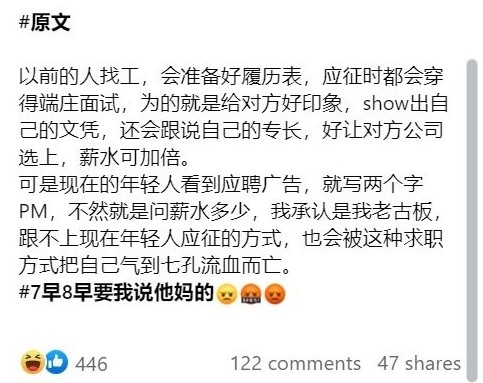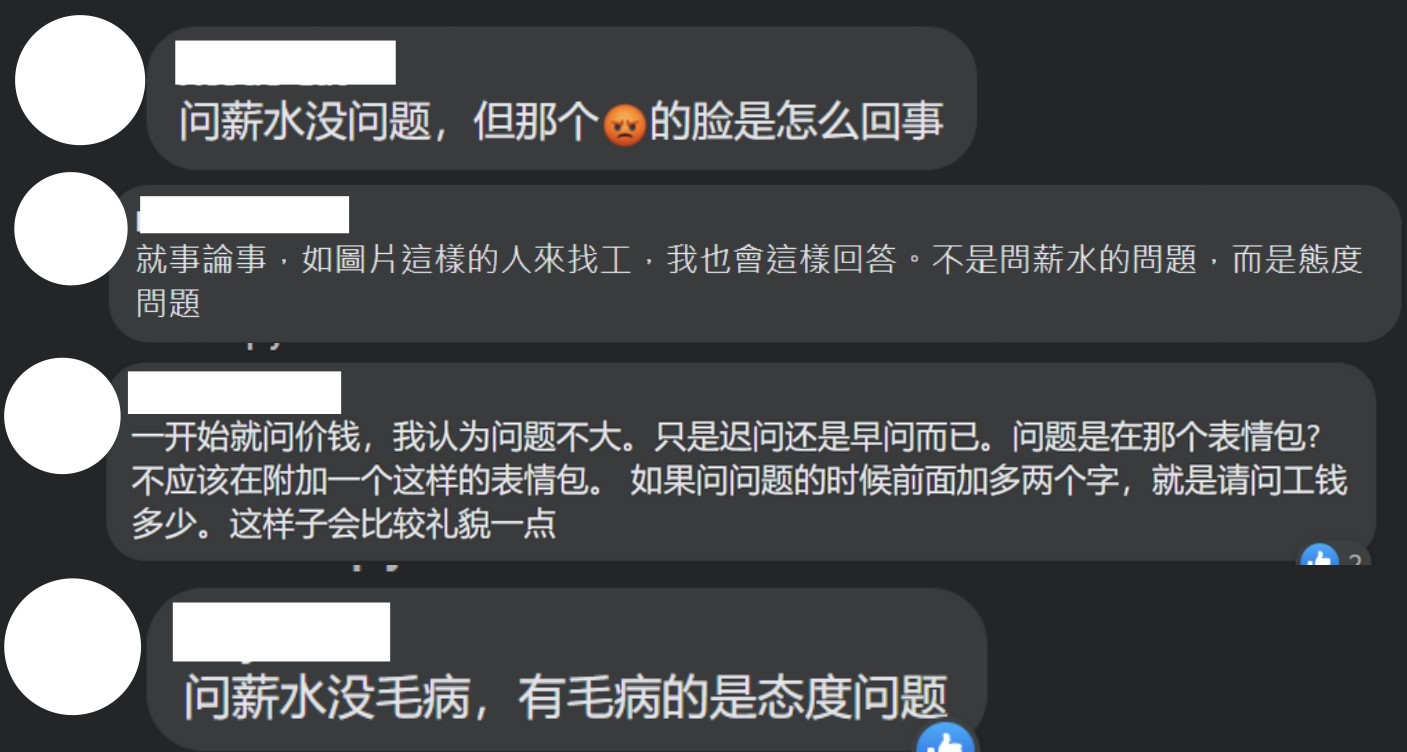Frustrated Employer Claims Job Applicants Today Are Rude And Only Care About Salaries
The employer claimed that people back then cared more about first impressions during interviews than the youth today.
A disgruntled employer recently aired his frustrations about a job candidate, who, the employer claimed, had a poor attitude after receiving rude WhatsApp messages from them
According to China Press, the employer said that the job applicant reached out to him to inquire about a waitering position.
The anonymous employer replied by asking if the individual had any experience in the position. Instead of answering the question, the applicant asked what was the salary offered for the position and sent an angry emoji.
The employer responded to the message saying, "I asked you a question and you refused to answer it. I don't even know if you have experience in the position so how can I quote you a salary?"
"I have other applicants to reply to. I even had to receive your angry reaction for responding to you. Are you really looking for a job?"
"Sorry, I think you're not a suitable candidate. Thank you."
Annoyed by the interaction, the employer decided to rant about his experience on Facebook, claiming that job candidates during his generation were much different from the ones today
He claimed that during his generation, jobseekers would dress professionally and have a resume ready whenever they had job interviews to attend.
The employer also claimed that people from his generation cared more about making a good first impression to potential employers, which could lead to getting a higher salary than what was initially offered.
However, he said that the youth today just want to know the salary of a job position and send two-word messages to employers.
"I admit that I am old-fashioned and can't keep up with the way young people apply for jobs today. However, I am so angry with this method of job hunting that it makes me want to bleed to death," the employer wrote.
Many netizen were split on this situation, with some defending the job candidate, while others said that the way they behaved was uncalled for
Those defending the jobseeker claimed that asking for a salary range off the bat was more efficient and would ensure the candidate and employer's time was not wasted if the pay did not meet expectations.
Others also agreed that there was nothing wrong with the candidate asking for the salary range, but said that they should have been more polite during the interaction.



